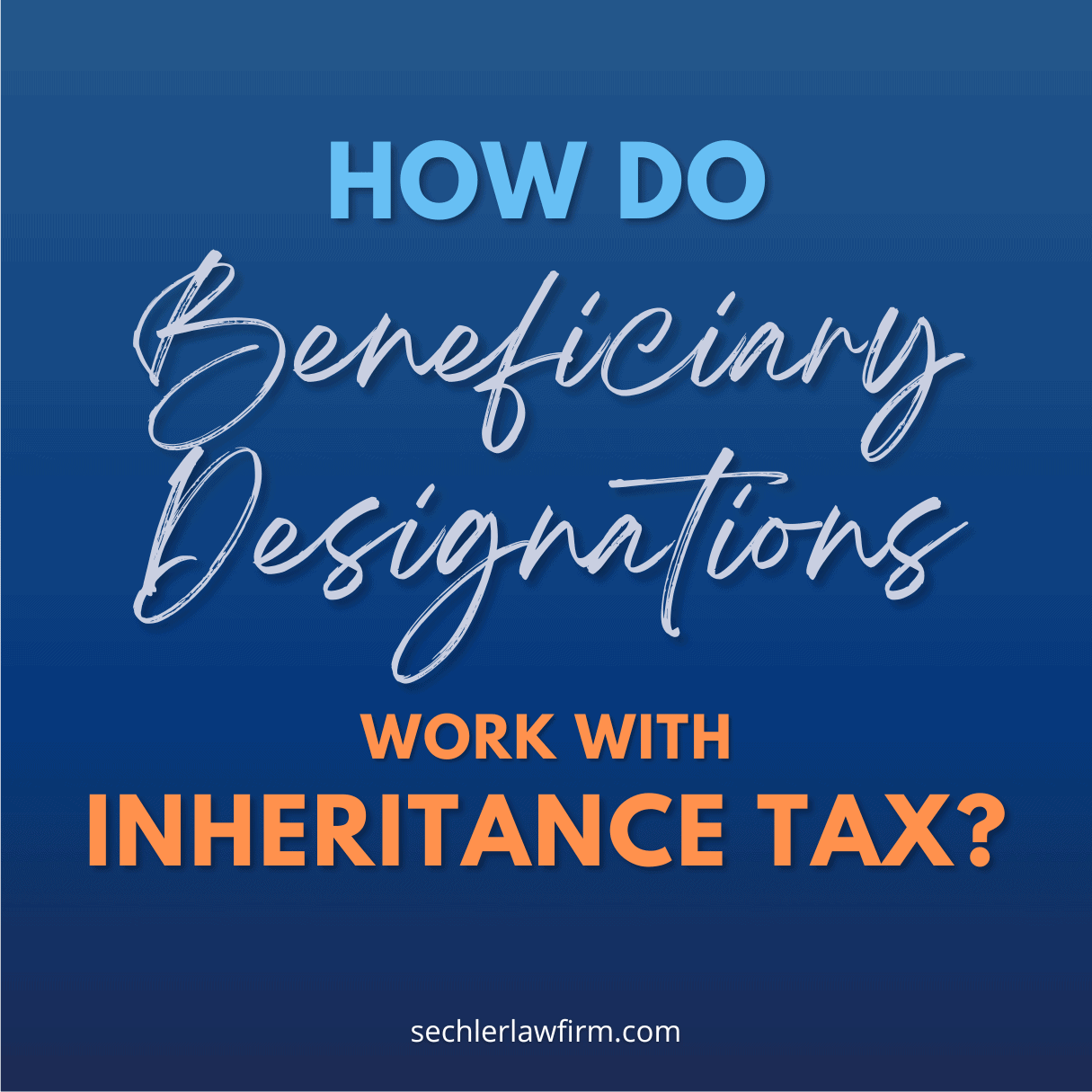We’ve outlined a few reasons in previous blog articles this week, about not relying too much on beneficiary designations. Another reason to not rely too heavily on beneficiary designations is that Pennsylvania has an inheritance tax. This is a tax that is due when you pass away, but it is not technically owed by the estate of the person who passed away, but is due for payment by the person who inherits money. What people tend to do is put the burden on the estate to cover all the inheritance taxes, and this is stipulated in the Will.
It becomes a problem when the executor needs to administer the Will and doesn’t know what everybody received. It could be that one asset was beneficiary designated to a cousin, and another asset was beneficiary designated to a sibling, but the executor doesn’t know what they inherited. She has to track down that information because she’s responsible for paying the inheritance tax. If there has been a family rift, and those who have inherited money are not communicating with each other, it becomes a challenge for the executor.
Inheritance Tax Rates
Another factor to consider is that the inheritance tax rate for transfers differs for whomever receives the inheritance. The rate for direct descendants and lineal heirs is 4.5%. The rate is 12% for siblings and 15% for other heirs. This means that if the Will may be subsidizing and paying 15% for the cousins inheritance tax, while it could have been subject to only 4.5% tax. Pennsylvania’s inheritance tax can be a nuisance for families who rely too heavily on beneficiary designations.
Financial advisors believe you should avoid probate because estates get too expensive. While probate can be costly, estates get expensive because we have to untangle the mess. It is best not to create the mess in the first place and do proper estate planning.
We can help you with doing some good estate planning for your and your family. To learn more, we encourage you to come to one of our workshops. Register for a workshop on our website.









